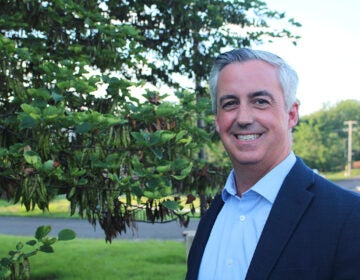Low-carb Atkins diet gains support. Keys to making it work for you!
Momentum is building in support of the high protein, low carbohydrate diet advocated by Dr. Robert C. Atkins and increasing numbers of other medical authorities. The new feature documentary “Fed Up” makes the case for the low carb diet, and against the traditional low-fat, low-calorie diet, in the same way that “An Inconvenient Truth” made the case against man-made global warming and climate change.
Recent articles in the New York Times, the Wall Street Journal, and many other publications add to the growing literature condemning the traditional low-fat, low-calorie diet as a major unintended cause of obesity, diabetes, and heart disease in the U.S. and worldwide. Laurie David, a producer of “An Inconvenient Truth”, is also a producer of “Fed Up”, along with television news anchor Katie Couric, who narrates the new film.
Millions of Americans have tried the Atkins diet or one of the many high protein, low carbohydrate variations of it. They experienced the initial positive weight loss, but were unable to stay on the diet despite its apparent benefits. So the incidence of obesity, diabetes, and heart disease all continue to increase in the U.S. and around the world.
My experience with the diet may be different than most because my doctor put me on it saying, “The bad news is that if you do nothing, I predict you will become diabetic just like your parents, but the good news is that it’s entirely up to you whether you let that happen.” His solution was the Atkins diet, which I immediately tried, discovering the incidental side-effect of weight loss.
Despite the dramatic improvement in my blood test lab results and the fairly dramatic weight loss, like most who tried the diet, I too, eventually fell off the wagon, succumbing to the proliferation of amazingly delicious and varied food in Japan during a teaching stint there. Oh well, I thought, everyone gains weight as they age. It’s really inevitable, right?
Back in the U.S., a second doctor delivered the same message to me: “You have to stop eating carbs.” This was not to improve my appearance, but to lower the bad things in my blood. Again, going back on the diet put all my blood work back into normal range, and incidentally lowered my weight.
So here’s what I learned about the high protein, low carbohydrate diet:
First, it gets easier the more times you try it. You know the rules and what to expect. Totally eliminate all sugar, juice, milk, flour, bread, grains, pasta, and white potatoes from your diet. Read food labels for what you eat to try to get your carb consumption as close to zero grams daily as possible. I recommend Dr. Atkins’ book Diet Revolution which can be bought used at very low cost.
Of course zero grams is impossible. There’s some carbs in lettuce, celery, broccoli, green beans, and other low-carb vegetables that you have to eat for a balanced diet. But you can eat all the cheese, eggs, chicken, fish, meat, and butter that you want. No milk or half and half in your coffee, only heavy cream. Delicious!
Artificial sweeteners are not without controversy. But the speculative risks of long-term use are small compared to the known harms caused by long-term consumption of sugars and carbs. Eliminate all fruits except blueberries.
So eggs for breakfast, scrambled, poached, boiled, fried in butter, omelets, with bacon, sausage, or other meats. Salads for lunch with cheese, meats, tuna in olive oil. Eat all you want, though you won’t be as hungry as before. For dinner, eat all the meat, cheese, green vegetables and butter that you want. Eliminating desserts would be optimal, but I mix some blueberries and artificial sweetener into the 10% milk fat Cabot Greek unsweetened yogurt available in select groceries. Maximum fat means minimal carbs which is the goal. For a snack, eat nuts.
Second, don’t stop exercising just because you’re losing weight. Exercise is essential for general good health and will enhance whatever benefits you are seeking from your diet.
Third, start thinking of eating as the way to get essential nutrients into your body, not as a primary source of hedonistic pleasure.
Finally, cost. If your budget is tight, eggs are the cheapest source of protein around. Eat lots. Buy the store brand cheese, butter and frozen vegetables. Even blueberries come frozen in three pound bags at Target. And be sure to see the movie “Fed Up” in your local theater.
WHYY is your source for fact-based, in-depth journalism and information. As a nonprofit organization, we rely on financial support from readers like you. Please give today.




